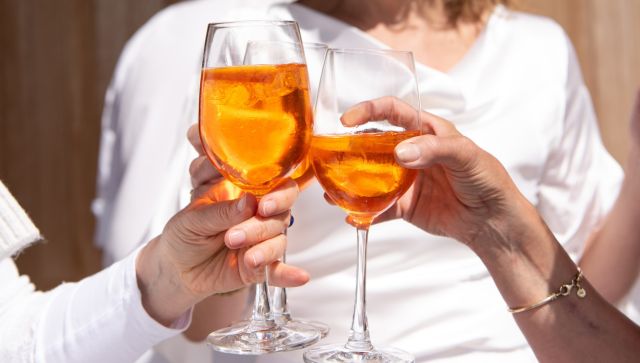You might have heard that alcohol helps with sleep, but this is not entirely true. Some people have a glass of liquor before going to bed. If you are among those, you would want to keep that glass down and read this story. While alcohol may help you doze off easily, it could also ruin a good night’s sleep. Let’s deep dive into how and why this happens. How alcohol affects sleep Studies show that nightcaps result in a reduced quality of sleep. Although alcohol could make some people fall asleep faster, it affects their sleep patterns during the night. “Also, once the alcohol wears off, there can be a rebound effect, causing some people to wake up early and have trouble falling back asleep,” Aaron White, the senior scientific adviser to the director of the National Institute on Alcohol Abuse and Alcoholism, told The Washington Post. According to a New York Times (NYT) report,
alcohol disrupts our sleep architecture, meaning the normal phases of deeper and lighter sleep we experience during the night. [caption id=“attachment_13590652” align=“alignnone” width=“640”] While alcohol may help you doze off easily, it could also ruin a good night’s sleep. Reuters (Representational Image)[/caption] Drinking before bedtime can “interrupt” these patterns with the person waking up several times at night. “You pay for it in the second half of the night. Alcohol is initially sedating, but as it’s metabolised, it’s very activating,” Dr Jennifer Martin, a psychologist and professor of medicine at the University of California, Los Angeles, told NYT. A 2022 review of a study on month-long alcohol abstention found that volunteers reported improvements in sleep frequently. A survey of 4,000 participants from a
Dry January challenge in the United Kingdom showed that 56 per cent said that they slept better without alcohol, reported The Washington Post. What happens after drinking After we consume alcoholic beverages, it enters our bloodstream, reaching the brain and affecting chemical messengers known as neurotransmitters, as per The Conversation report. It then slows down communication between nerve cells. Alcohol can make us feel relaxed and lightheaded, induce drowsiness and lethargy, the report added. Due to its sedative effect, alcohol may lead to people drifting off to sleep easily. It happens as there is a high level of alcohol in the blood at this point. However, once the body starts processing the drink, alcohol messes with sleep. “As your body processes the alcohol and your blood alcohol level drops, your brain rebounds from the drowsiness you would have felt earlier in the night,” The Conversation reported. People may toss and turn as the brain rebounds from the sleepiness felt earlier. You can also have vivid or stressful dreams as fitful sleep means you are waking up more often and are likely to remember them, noted NYT. [caption id=“attachment_13590662” align=“alignnone” width=“640”]
People may wake up several times during the night because of a rebound effect. Pixabay (Representational Image)[/caption] As alcohol is a diuretic – a substance that increases urine production, you may wake up to use the washroom. As per The Conversation, those who indulge in nightcaps are likely sleeping less overall, cutting back on the much-needed rest. “If you have a glass of champagne with brunch in the morning, it’s not going to affect your sleep. But if you have a half a bottle of wine with dinner at night, it will definitely have an effect,” Martin, who is also a spokesperson for the American Academy of Sleep Medicine, was quoted as saying by The Washington Post. What can be done? People can partake in Dry January – meaning going sober for this month – if they want to find out whether alcohol is disrupting their sleep, Deirdre Conroy, the clinical director of the Behavioral Sleep Medicine Clinic at the University of Michigan, told The Washington Post. However, those who drink regularly should not stop altogether as it can lead to insomnia or other sleep issues. They can instead cut back on liquor slowly. Dr Martin said people can participate in “an alcohol holiday” for at least two weeks. “It can be very eye-opening to appreciate how much alcohol affects your sleep. It turns out that if they don’t drink, they sleep much better,” NYT quoted the psychologist as saying. Experts also say that people should have a gap of at least a few hours before drinking and bedtime. Dr Martin told The Washington Post that she gave up alcohol for a some time a few years back and noticed “just giving up that one glass of wine in the evening, I slept so much better.” With inputs from agencies
Research shows that drinking alcohol before bedtime results in a reduced quality of sleep. Once liquor starts wearing off, it can lead to some people waking up during the night and having trouble drifting off again
Advertisement
End of Article


)

)
)
)
)
)
)
)
)



